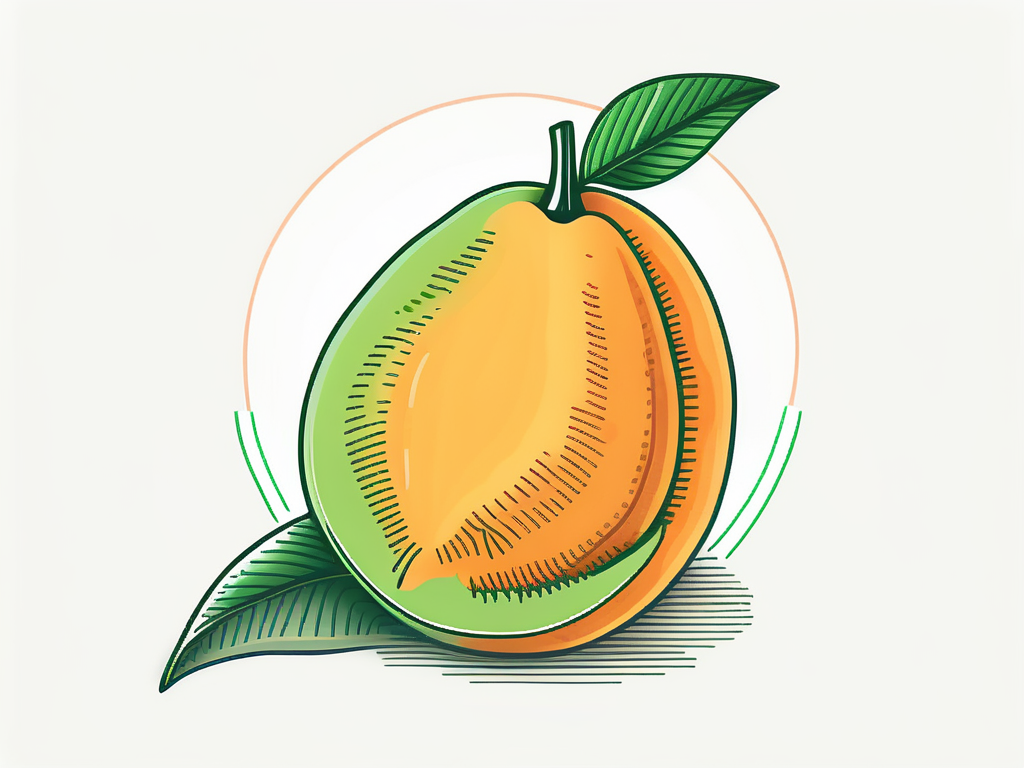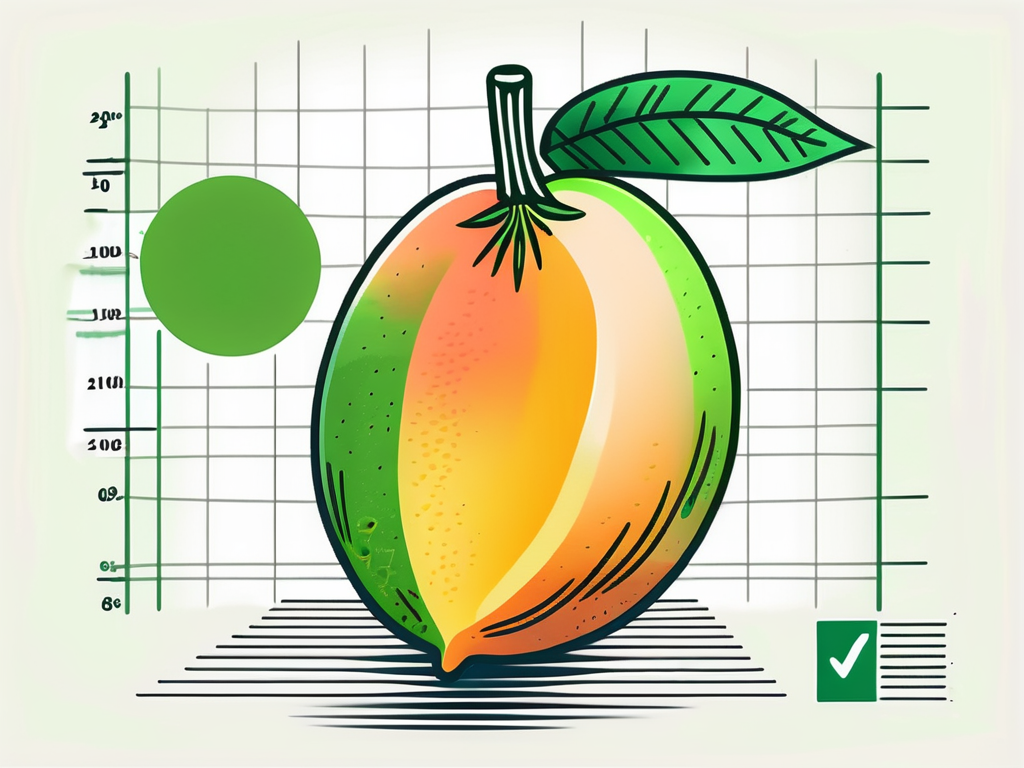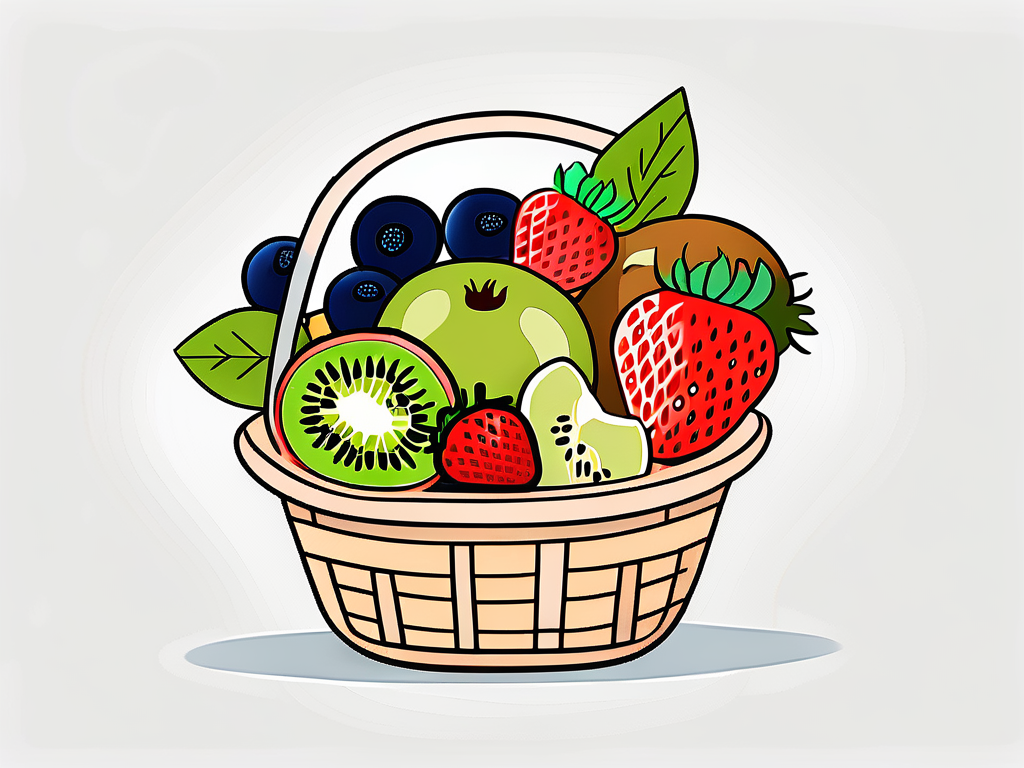Mangoes are a delicious and nutritious fruit that many people enjoy. However, for those following a low FODMAP diet, there may be some concerns about including mangoes in their meals. In this article, we will explore the relationship between mangoes and FODMAPs and whether or not mangoes are considered low FODMAP.
Understanding FODMAPs
To understand whether mangoes are low FODMAP, it's important to first understand what FODMAPs are. FODMAPs are a group of fermentable carbohydrates that can cause digestive symptoms in some individuals, especially those with irritable bowel syndrome (IBS). The acronym FODMAP stands for Fermentable Oligosaccharides, Disaccharides, Monosaccharides, and Polyols.
What are FODMAPs?
FODMAPs are a type of carbohydrate that are poorly absorbed in the small intestine. Instead, they travel to the large intestine where they are fermented by bacteria. This fermentation process can lead to the production of gas, causing symptoms such as bloating, abdominal pain, and diarrhea in some individuals.
It's important to note that not all FODMAPs are created equal. Some individuals may be more sensitive to certain types of FODMAPs than others. For example, some people may be able to tolerate small amounts of fructose, a type of monosaccharide, while others may experience symptoms even with a small serving.
The Role of FODMAPs in Digestion
For individuals with IBS, FODMAPs can be a trigger for digestive symptoms. By following a low FODMAP diet, which involves restricting certain high FODMAP foods, many people with IBS can alleviate their symptoms and improve their overall digestive health.
It's worth mentioning that the low FODMAP diet is not meant to be a long-term solution. The goal is to identify trigger foods and then gradually reintroduce them to determine individual tolerance levels. This personalized approach can help individuals enjoy a varied diet while managing their digestive symptoms effectively.
High and Low FODMAP Foods
High FODMAP foods are those that contain larger amounts of FODMAPs and are more likely to cause symptoms in sensitive individuals. Some examples of high FODMAP foods include onions, garlic, wheat, dairy products, and certain fruits.
On the other hand, low FODMAP foods have smaller amounts of FODMAPs and are less likely to trigger symptoms. These include foods like rice, potatoes, carrots, and some fruits. It's important for individuals following a low FODMAP diet to work with a healthcare professional or dietitian to ensure they are still meeting their nutritional needs while avoiding high FODMAP triggers.
The Nutritional Profile of Mangoes
Mangoes are not only delicious but also packed with essential nutrients. They are a good source of vitamins and minerals, as well as dietary fiber.
Originating from South Asia, mangoes are often referred to as the "king of fruits" due to their deliciously sweet and tropical flavor profile. Apart from being a popular fruit for consumption on its own, mangoes are also widely used in various culinary dishes, such as salads, smoothies, and desserts.
Vitamins and Minerals in Mangoes
Mangoes are rich in vitamins A and C, both of which are important for a healthy immune system. They also contain significant amounts of potassium and magnesium, which are essential for maintaining proper heart function and blood pressure.
Vitamin A is crucial for maintaining healthy vision, skin, and mucous membranes. On the other hand, vitamin C is a powerful antioxidant that helps protect cells from damage and boosts the body's ability to absorb iron. Additionally, potassium plays a vital role in regulating fluid balance, muscle contractions, and nerve signals, while magnesium is involved in over 300 enzymatic reactions in the body.
Fiber Content in Mangoes
Dietary fiber is important for maintaining a healthy digestive system and promoting regular bowel movements. Mangoes are a good source of fiber, with an average-sized mango containing about 3 grams of fiber.
Consuming an adequate amount of fiber is essential for supporting gut health, preventing constipation, and reducing the risk of chronic diseases such as heart disease and type 2 diabetes. The fiber content in mangoes not only aids in digestion but also helps you feel full and satisfied, making it a great snack option for those looking to maintain a healthy weight.
Mangoes and FODMAPs
Now, let's address the main question: are mangoes low FODMAP?

Mangoes, often referred to as the "king of fruits," are not only delicious but also offer a plethora of health benefits. Rich in vitamins, minerals, and antioxidants, mangoes are a tropical fruit that can be a delightful addition to your diet.
FODMAP Content in Mangoes
According to the Monash University FODMAP Diet app, mangoes are considered low FODMAP. This means that they can be enjoyed by individuals following a low FODMAP diet without worrying about triggering their digestive symptoms.
Furthermore, mangoes are a good source of dietary fiber, which can aid in digestion and promote gut health. The fiber content in mangoes can help regulate bowel movements and prevent constipation.
How Mangoes Affect Digestion
While mangoes are low FODMAP, it's important to note that they still contain fiber and natural sugars, which can sometimes cause digestive discomfort in large amounts. It's always best to listen to your body and eat mangoes in moderation, especially if you are still getting used to a low FODMAP diet.
In addition to their fiber content, mangoes are also rich in vitamins A and C, which are essential for a healthy immune system and glowing skin. Including mangoes in your diet can help boost your overall health and well-being.
If you find that mangoes still cause symptoms for you even though they are low FODMAP, it may be worth consulting with a registered dietitian or healthcare professional for further guidance.
Incorporating Mangoes into a Low FODMAP Diet
If you've determined that mangoes work well for you and your digestive system, here are some tips for incorporating them into your low FODMAP diet.

Mangoes are not only delicious but also packed with essential nutrients. They are a rich source of vitamins A and C, as well as dietary fiber. The vibrant color of mangoes comes from beta-carotene, a powerful antioxidant that helps support a healthy immune system.
Portion Sizes and FODMAPs
As with any food, portion sizes matter. While mangoes are low FODMAP, consuming large amounts of them in one sitting may still lead to symptoms for some individuals. Therefore, it's best to start with a small portion, such as half a mango, and see how your body responds.
It's important to note that the ripeness of the mango can also impact its FODMAP content. Riper mangoes tend to have higher levels of free fructose, which may be more difficult to digest for some individuals following a low FODMAP diet.
Pairing Mangoes with Other Low FODMAP Foods
Mangoes can be enjoyed alone as a quick snack or incorporated into a variety of low FODMAP recipes. Some delicious and FODMAP-friendly options include adding mangoes to salads, blending them into smoothies, or using them in homemade salsas.
For a refreshing and nutritious breakfast option, try pairing diced mango with lactose-free yogurt and a sprinkle of low FODMAP granola. This combination provides a balance of carbohydrates, protein, and fats to keep you satisfied throughout the morning.
Other Fruits to Consider in a Low FODMAP Diet
While mangoes are low FODMAP, there are also many other fruits that can be enjoyed on a low FODMAP diet.

Low FODMAP Fruits and Their Benefits
- Strawberries: Packed with vitamin C and antioxidants
- Blueberries: Rich in fiber and antioxidants
- Grapes: A good source of hydration and vitamin C
- Kiwi: High in vitamin C and fiber
- Oranges: A great source of vitamin C and folate
In addition to these fruits, there are several other options that can add variety and nutrition to your low FODMAP diet. Pineapple, for example, is not only delicious but also rich in vitamin C and manganese. Pineapple contains an enzyme called bromelain, which may help with digestion and reduce inflammation in the body.
Another fruit to consider is raspberries, which are low in FODMAPs and high in fiber, providing support for digestive health. Raspberries are also a good source of vitamin C and antioxidants, making them a nutritious addition to your diet.
High FODMAP Fruits to Avoid
- Apples: Contains high amounts of fructose
- Pears: High in fructose and polyols
- Watermelon: Contains high amounts of fructose
- Mangoes (ripe): While low FODMAP in small amounts, larger amounts may cause symptoms for some individuals
Remember, everyone's tolerance to FODMAPs is different, so it's essential to listen to your body and work with a healthcare professional or dietitian to determine which fruits work best for you.